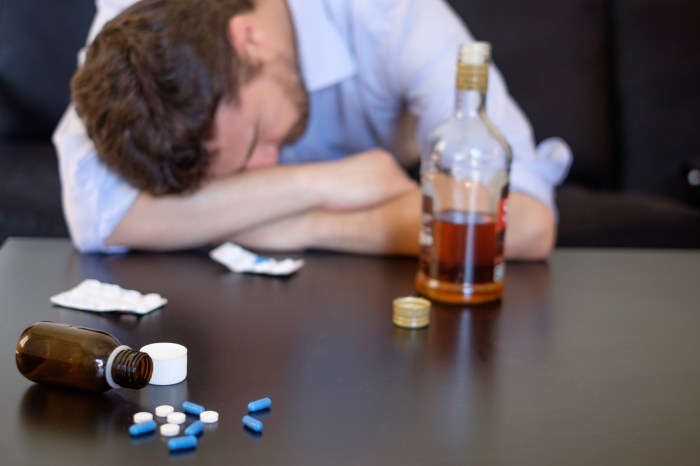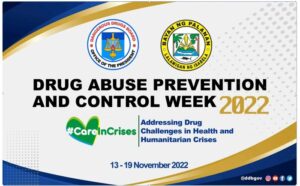
Drug addiction is like that uninvited guest who crashes the party and refuses to leave, turning what could have been a fabulous bash into a chaotic ruckus. It’s a complex phenomenon that not only envelops the individual in a haze of cravings and compulsions but also leaves a trail of bewildered family members and friends in its wake. With a blend of biological quirks and psychological puzzles, drug addiction dances on a tightrope strung between personal choices and uncontrollable urges, shaping lives across the globe.
As we dive deeper into the murky waters of this topic, we’ll explore the intricate factors contributing to addiction and the staggering statistics that paint a vivid picture of its prevalence. From the health implications that can turn your life upside down to the roads leading to recovery, this journey is as enlightening as it is essential, making you rethink what you thought you knew about addiction.
Drug Addiction Overview

Drug addiction, also known as substance use disorder, is a complex condition characterized by compulsive drug seeking and use, despite harmful consequences. It’s not just a matter of willpower; addiction is a multifaceted disease that affects the brain’s structure and function. Whether you’re trapped in the clutches of opiates or have a close relationship with the ups and downs of alcohol, understanding the scope of drug addiction reveals a landscape fraught with challenges for individuals and society alike.The biological and psychological factors contributing to drug addiction are intertwined in a way that makes recovery not just a physical battle, but also a mental one.
On the biological side, drugs can alter the brain’s chemistry, leading to physical dependence. Psychological factors include emotional trauma and mental health issues, which often co-occur with substance use disorders. Essentially, while drugs may initially provide a sense of pleasure, they eventually hijack the brain’s reward system, creating a cycle that can be challenging to escape.
Statistics and Trends
Understanding the statistics and trends related to drug addiction across the globe shines a light on the scale of this epidemic. The numbers tell a sobering story, illustrating the prevalence of drug use and the dire consequences that accompany it. For context, consider the following statistics:
- According to the World Health Organization (WHO), around 35 million people worldwide suffer from drug use disorders.
- In the United States, approximately 21 million people had a substance use disorder in 2019, with only 10% receiving treatment.
- The global illicit drug market is estimated to be worth over $320 billion, showing that demand for drugs remains high despite health risks.
“Addiction is a family disease. One person may use, but the whole family suffers.”
The trends surrounding drug addiction are shifting as well, with the rise of synthetic opioids, particularly fentanyl, contributing significantly to overdose deaths. For instance, data from the CDC highlights that in 2020 alone, over 93,000 drug overdose deaths occurred in the U.S., marking a dramatic increase from previous years. This alarming trend underscores the need for effective prevention strategies and robust support systems for those affected by addiction.In summary, drug addiction is not just a personal issue; it is a public health crisis that requires collective awareness and action.
As we delve deeper into the realm of addiction, it becomes clear that addressing its biological, psychological, and social components is essential for effective intervention and recovery.
Health Implications of Drug Addiction
Drug addiction weaves a tangled web of health complications that extend far beyond the immediate effects of substance abuse. As if the rollercoaster of addiction wasn’t dizzying enough, the ride often leads straight into a labyrinth of chronic health issues, many of which can feel like a game of medical Whac-A-Mole. The relationship between drug addiction and various health conditions is complex and multifaceted, often requiring a thorough understanding to navigate.
Relationship Between Drug Addiction and Diabetes
The link between drug addiction and diabetes is more significant than you might think. Certain substances, particularly stimulants like cocaine and methamphetamine, can lead to erratic eating habits and unregulated blood sugar levels, paving the way for diabetes to crash the party uninvited. Individuals battling addiction may neglect their health, leading to obesity or malnutrition, both of which are risk factors for diabetes.
The management of diabetes becomes a precarious balancing act when compounded by addiction. Here are some strategies for managing this dual threat:
- Regular Monitoring: Blood sugar levels should be regularly checked, as substance use can cause unpredictable spikes and drops.
- Nutritional Guidance: A diet rich in whole foods is crucial; think of it as a way to woo your pancreas back into a happy relationship with your body.
- Behavioral Therapy: Engaging in counseling or support groups can provide the emotional support needed to tackle both addiction and diabetes.
Health Complications Associated with Drug Addiction
The impact of drug addiction on mental health is like that pesky roommate who never pays rent but keeps bringing friends over—overcrowding and chaos ensue. Substance abuse can exacerbate pre-existing mental health disorders or even catalyze new ones, such as anxiety, depression, and schizophrenia. These complications are not just names on a medical chart; they can lead to a cascade of other health problems.
Here’s why addressing mental health in addiction recovery is paramount:
- Increased Suicide Risk: Individuals with both addiction and mental health disorders face a higher risk of suicide, necessitating vigilant monitoring.
- Chronic Stress: The stress of addiction can lead to cardiovascular issues, which, combined with mental health struggles, creates a formidable foe for overall health.
- Social Isolation: The stigma surrounding addiction and mental health can lead to withdrawal from social circles, further deteriorating mental well-being.
Influence of Drug Addiction on Diseases
Drug addiction doesn’t just knock at the door—it kicks it down, opening pathways to diseases like Multiple Sclerosis (MS) and sexually transmitted diseases (STDs). Studies suggest that substance abuse may not directly cause MS, but it can worsen symptoms and complicate management. For instance, individuals with MS may turn to drugs to cope with chronic pain, inadvertently escalating their health issues.The correlation with STDs is equally alarming.
Engaging in risky behaviors, often fueled by substance use, can lead to a higher likelihood of contracting STDs. This relationship underscores the importance of comprehensive health education in addiction recovery. Here’s a closer look at how this plays out:
- Increased Risky Behaviors: Drugs can impair judgment, leading to unprotected sex and higher exposure to STDs.
- Compromised Immune System: Drug addiction may weaken the immune response, making the body less equipped to fight off infections.
- Delayed Treatment: Individuals may avoid seeking treatment for STDs due to stigma or fear, compounding health issues.
Addressing Drug Addiction through Health and Wellness

In the battle against drug addiction, we often focus solely on the individual fighting the good fight. However, like a well-oiled machine, the entire support system around them is crucial for recovery. This guide will delve into the robust framework of rehabilitation options, prevention strategies, and the surprising role of exercise in this journey toward wellness. Get ready to turn some serious frowns upside down!
Support Systems and Rehabilitation Options
A supportive environment is fundamental when tackling drug addiction, akin to a superhero team-up where everyone plays a part. Here’s a look at some of the unsung heroes in the realm of recovery:
- Inpatient Rehabilitation Programs: These structured environments provide 24/7 care, allowing individuals to focus solely on recovery without the temptations of the outside world.
- Outpatient Rehabilitation Programs: Perfect for those who crave freedom and flexibility while still needing support, these programs allow individuals to attend sessions around their daily lives.
- Support Groups: Think of these as the Avengers for addiction—members share experiences, offer advice, and provide solidarity. Well-known groups include Alcoholics Anonymous (AA) and Narcotics Anonymous (NA).
- Therapy and Counseling: Professional therapists help individuals uncover underlying issues that contribute to addiction, offering a safe space to confront their demons.
- Family Support Programs: These programs educate families on how to support their loved ones effectively and create a nurturing home environment.
“The best way to predict the future is to create it.” – Peter Drucker
Strategies for Preventing Drug Abuse
Preventing drug abuse starts long before the need for rehabilitation arises. By harnessing the power of education and community involvement, we can create fortified barriers against addiction. Here’s how we can construct this wall of wisdom:
- Educational Programs: Schools and community centers can host workshops that educate individuals about the dangers of drug use, using engaging methods like role-playing or interactive media to drive the message home.
- Community Outreach: Organizing events that promote healthy lifestyles and alternatives to drugs, such as sports tournaments or art fairs, can draw people together in celebration rather than isolation.
- Parental Involvement: Parents can play a vital role by fostering open communication about drugs, making it a topic that can be discussed freely and without judgment.
- Peer Support Programs: Training peers to recognize the signs of drug use can create an atmosphere where friends look out for one another.
The Role of Exercise and Fitness Equipment
Exercise isn’t just for building biceps and burning calories; it’s a secret weapon in the fight against drug addiction. Here’s how physical activity can get a thumbs-up in recovery:
- Endorphin Boost: Exercise releases endorphins, aka the body’s natural happy pills, which can combat feelings of depression and anxiety often associated with recovery.
- Building Routine: Regular workouts establish structure and discipline, which are beneficial attributes when someone is working on overcoming addiction.
- Social Interaction: Joining fitness classes or team sports allows individuals to connect with others, reducing feelings of loneliness and isolation.
- Fitness Equipment: Simple tools like resistance bands or weights can be used at home, making exercise accessible and less intimidating.
“Exercise is a celebration of what your body can do, not a punishment for what you ate.”
Conclusive Thoughts
In conclusion, drug addiction is not just a personal battle; it’s a societal whirlwind that demands our attention, compassion, and action. While the journey toward recovery can be daunting, it is filled with hope, support, and strategies that can pave the way for a brighter future. By understanding the complexities of addiction and working together, we can help turn the tide against this relentless foe, ensuring that the party returns to its joyous state and that uninvited guests are shown the door.
Questions Often Asked
What is drug addiction?
Drug addiction is a chronic disease characterized by compulsive drug seeking and use, despite harmful consequences.
How does drug addiction affect mental health?
Drug addiction can exacerbate mental health issues, leading to conditions like anxiety, depression, and psychosis.
What are common signs of drug addiction?
Signs include changes in behavior, neglecting responsibilities, withdrawal symptoms, and increased tolerance to substances.
Can drug addiction be treated?
Yes, drug addiction is treatable through various rehabilitation programs, therapy, and support groups.
What role does family play in recovery from addiction?
Family support is crucial in recovery, providing a nurturing environment and encouraging accountability.







